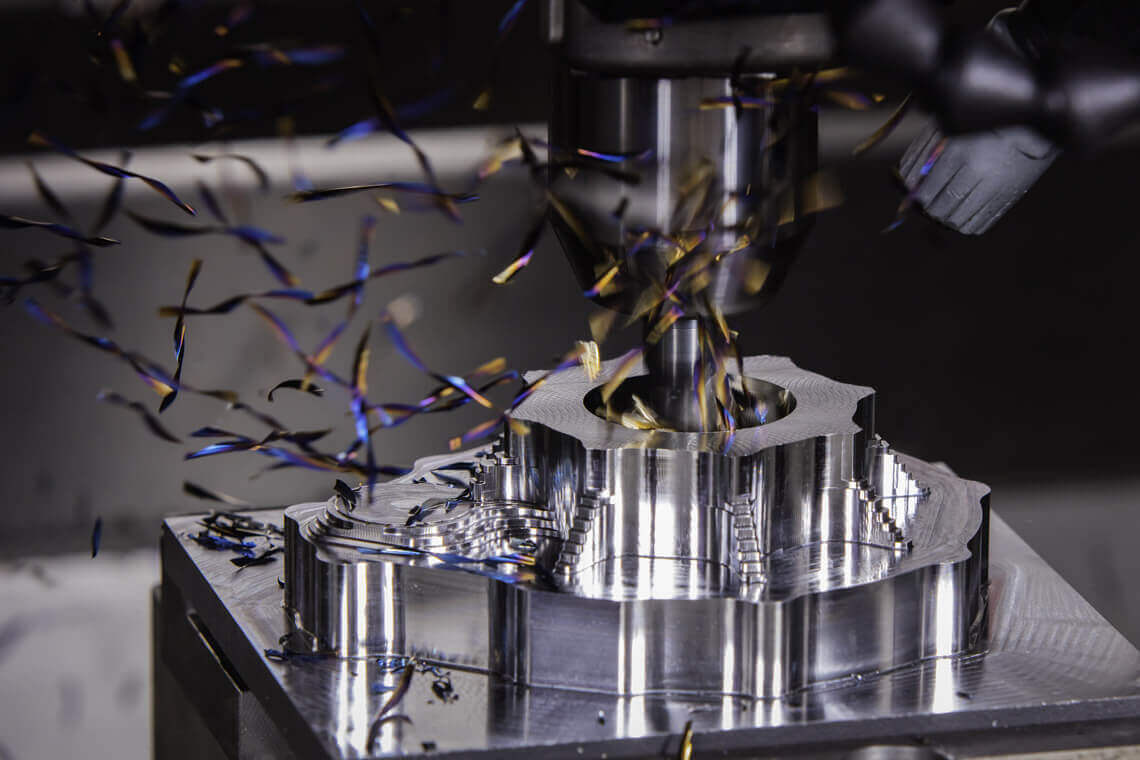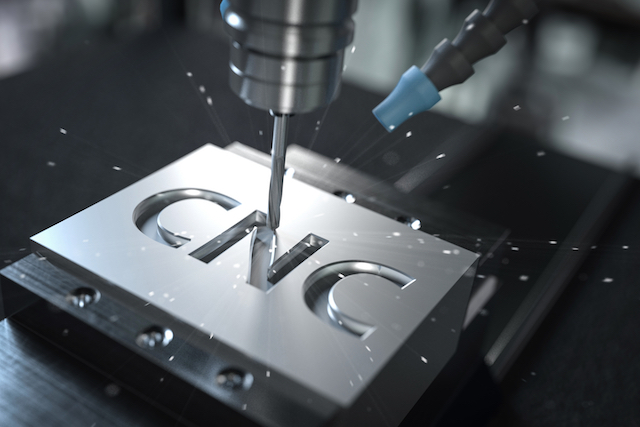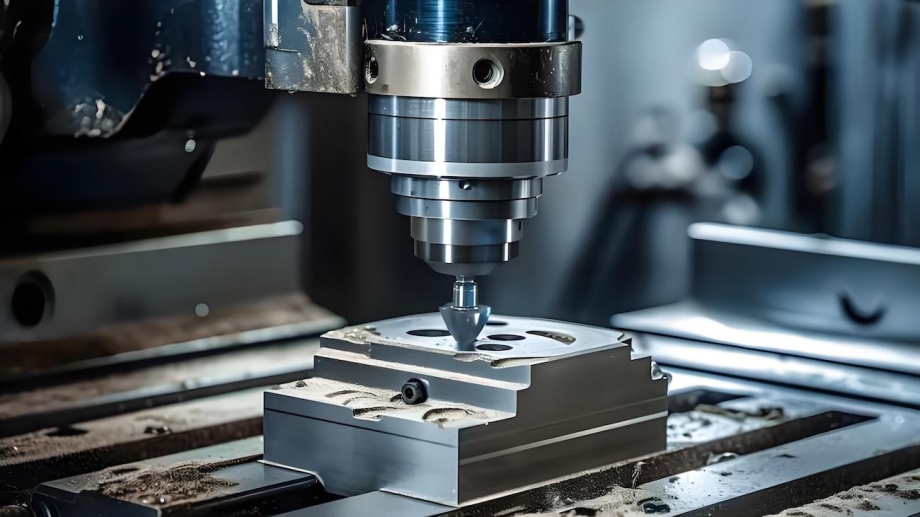CNC milling services have revolutionized manufacturing across various sectors by providing precision, efficiency, and versatility. This article explores the industries that benefit the most from CNC milling, detailing how these services enhance production processes and product quality. By understanding the applications and advantages of CNC milling, businesses can better appreciate its role in modern manufacturing.
Understanding CNC Milling Services
CNC (Computer Numerical Control) milling is a subtractive manufacturing process that uses computer-controlled machines to remove material from a workpiece. This technology allows for the creation of complex shapes and designs with high accuracy. CNC milling is widely used in various industries due to its ability to produce intricate parts quickly and consistently. The process begins with a digital design, which is translated into machine instructions, allowing for precise control over the cutting tools. This level of automation not only increases efficiency but also minimizes human error, making CNC milling a preferred choice for many manufacturers.

Key Features of CNC Milling
CNC milling machines are equipped with advanced features that contribute to their effectiveness:
Precision: CNC milling can achieve tolerances as tight as a few microns, making it ideal for industries requiring high accuracy. This precision is crucial in applications where even the slightest deviation can lead to significant issues, such as in aerospace or medical device manufacturing.
Automation: The automated nature of CNC milling reduces human error and increases production speed. Operators can program the machines to run multiple jobs without constant supervision, allowing for continuous production and reduced labor costs.
Versatility: CNC milling can work with a wide range of materials, including metals, plastics, and composites. This versatility enables manufacturers to select the best materials for their specific applications, enhancing product performance and durability.
Complexity: The technology allows for the production of complex geometries that would be difficult or impossible to achieve with traditional machining methods. This capability opens up new design possibilities, enabling engineers to innovate and create more efficient and effective products.
Industries That Benefit from CNC Milling Services
Aerospace Industry
The aerospace sector is one of the primary beneficiaries of CNC milling services. This industry demands high precision and reliability due to the critical nature of its components. CNC milling is used to manufacture parts such as aircraft frames, engine components, and landing gear. The ability to produce lightweight yet strong parts is crucial in aerospace applications, and CNC milling meets these requirements effectively. Additionally, the rigorous testing and certification processes in aerospace manufacturing necessitate the high-quality standards that CNC milling can consistently deliver, ensuring safety and performance in flight.
Automotive Industry
CNC milling plays a significant role in the automotive industry, where it is used to create various components, including engine blocks, transmission housings, and custom parts for performance vehicles. The automotive sector benefits from the speed and accuracy of CNC milling, allowing manufacturers to produce high-quality parts that meet stringent safety and performance standards. Furthermore, as the industry shifts towards electric vehicles, CNC milling is essential for producing lightweight components that enhance energy efficiency and overall vehicle performance.
Medical Devices
The medical industry relies heavily on CNC milling for the production of precision components used in medical devices. Examples include surgical instruments, prosthetics, and implants. CNC milling ensures that these components are manufactured to exact specifications, which is vital for patient safety and device efficacy. The ability to create custom implants tailored to individual patients' needs is a significant advancement in medical technology, and CNC milling plays a crucial role in this personalized approach to healthcare.
Electronics Industry
In the electronics sector, CNC milling is used to create intricate parts for devices such as circuit boards, housings for electronic devices, and connectors and terminals. The ability to produce small, detailed components with high precision makes CNC milling an essential process in electronics manufacturing. As technology continues to advance, the demand for smaller and more complex electronic devices increases, further driving the need for CNC milling services that can meet these evolving requirements.

Defense Industry
The defense industry requires components that are not only precise but also durable. CNC milling is used to manufacture parts for military vehicles, weapon systems, and communication equipment. The reliability and accuracy of CNC milling are critical in ensuring that defense equipment performs under extreme conditions. Additionally, the ability to produce parts quickly and efficiently is essential in defense manufacturing, where rapid response to changing needs can be a matter of national security.
Marine Industry
CNC milling is also utilized in the marine industry for the production of parts such as hull components, engine parts, and custom fittings. The ability to work with corrosion-resistant materials is a significant advantage in marine applications, where components are exposed to harsh environments. CNC milling allows for the creation of complex shapes that enhance the performance and aesthetics of marine vessels, contributing to both functionality and design.
Oil and Gas Industry
In the oil and gas sector, CNC milling is essential for producing components that can withstand high pressures and temperatures. Applications include valve bodies, pump components, and pipe fittings. The precision and durability of CNC-milled parts are crucial for the safety and efficiency of oil and gas operations. As the industry faces increasing challenges related to sustainability and environmental impact, CNC milling can also facilitate the development of more efficient and eco-friendly technologies.
Consumer Goods
The consumer goods industry benefits from CNC milling in the production of various products, including kitchen appliances, furniture components, and sporting goods. CNC milling allows for customization and rapid prototyping, enabling manufacturers to respond quickly to market demands. This flexibility is particularly valuable in a fast-paced consumer market, where trends can change rapidly, and the ability to innovate is key to staying competitive.
Advantages of CNC Milling Services
Cost-Effectiveness
While the initial investment in CNC milling technology can be high, the long-term savings are significant. The efficiency of CNC milling reduces labor costs and minimizes material waste, leading to lower overall production costs. Additionally, the ability to produce high-quality parts consistently reduces the need for rework and scrap, further enhancing cost savings. As businesses seek to optimize their operations, CNC milling presents a viable solution for improving profitability.
Enhanced Quality Control
CNC milling machines are equipped with advanced software that allows for real-time monitoring and adjustments during the manufacturing process. This capability ensures consistent quality and reduces the likelihood of defects. By implementing stringent quality control measures, manufacturers can maintain high standards and build trust with their customers. The ability to track and analyze production data also enables continuous improvement, allowing companies to refine their processes over time.
Flexibility and Customization
CNC milling services offer manufacturers the flexibility to produce custom parts tailored to specific requirements. This adaptability is particularly beneficial in industries where unique designs are essential. The ability to quickly switch between different projects and produce small batches of customized parts allows businesses to meet diverse customer needs without significant downtime or reconfiguration costs.
Shorter Lead Times
The automation of CNC milling processes significantly reduces lead times. Manufacturers can produce parts faster, allowing for quicker turnaround times and improved responsiveness to customer needs. In industries where time-to-market is critical, such as electronics and consumer goods, the speed of CNC milling can provide a competitive edge. This efficiency not only enhances customer satisfaction but also allows businesses to capitalize on emerging opportunities in the market.

Conclusion
CNC milling services have become indispensable across various industries, providing the precision, efficiency, and flexibility required in modern manufacturing. From aerospace to consumer goods, the benefits of CNC milling are evident in the quality and reliability of the products produced. As technology continues to advance, the role of CNC milling in these industries is likely to expand, further enhancing manufacturing capabilities and driving innovation. By embracing CNC milling, businesses can position themselves for success in an increasingly competitive landscape, ensuring they meet the demands of their customers while maintaining high standards of quality and efficiency.
Frequently Asked Questions regarding Custom CNC Milling Service
1. What is CNC milling, and how does it work?
CNC milling is a subtractive manufacturing process that uses computer-controlled machines to remove material from a workpiece. It works by translating a digital design into machine instructions, allowing precise control over cutting tools to create complex shapes and designs with high accuracy.
2. What materials can be used in CNC milling?
CNC milling can work with a wide range of materials, including metals (such as aluminum, steel, and titanium), plastics (like acrylic and nylon), and composites (such as carbon fiber). This versatility allows manufacturers to select the best materials for their specific applications.
3. How does CNC milling improve production efficiency?
CNC milling improves production efficiency by automating the machining process, which reduces human error and increases speed. The ability to run multiple jobs without constant supervision allows for continuous production, leading to shorter lead times and lower labor costs.
4. What industries commonly use CNC milling services?
CNC milling services are commonly used in various industries, including aerospace, automotive, medical devices, electronics, defense, marine, oil and gas, and consumer goods. Each of these sectors benefits from the precision and versatility that CNC milling offers.
5. What are the advantages of using CNC milling over traditional machining methods?
The advantages of CNC milling over traditional machining methods include higher precision and accuracy, reduced labor costs due to automation, the ability to produce complex geometries, and shorter lead times. Additionally, CNC milling allows for greater flexibility in production, enabling manufacturers to quickly adapt to changing market demands.






